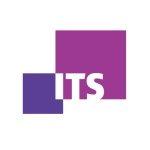Workshop
Details
The urgency of global climate change mitigation; the fragmentation of the players involved in operating the climate funds; and the great amount of financial resources needed to promote change on a global scale are fundamental characteristics of Climate Finance. In addition to that, the financial efforts to deal with climate change are challenged by inefficiency and corruption.
Being aware of this situation, the Paris Agreement recognizes the gravity of some of those issues and calls for greater international cooperation and technology sharing as well as greater transparency and compliance in all processes.
As technology plays a key role in this global process, innovation was identified as inevitable in order to foster and enable adequate solutions. A variety of actors have been searching for such alternatives. The Distributed Ledger Technology (also known as Blockchain) is undoubtedly one of the most promising opportunities in this area.
Although Blockchain is still little-known to the public, the recent success of some of its applications, namely Bitcoins and other cryptocurrencies, sheds some light on the potential applicability of this technology. As a consequence, Blockchain has recently been considered one of the Top 10 Emerging Technologies by the World Economic Forum – right next to Nanotechnology, Artificial Intelligence and other cutting-edge technologies.
Basically, the Blockchain technology allows a cryptographically-protected public or private virtual distributed ledger to store data while recording information from every other transaction done in the platform. Due to its decentralized recording structure, which builds blocks of transactions through a complex cryptographic process and stores them chronologically - as if it was a chain, the probability of altering the data from pass transactions is close to zero.
Due to its way of operating, the Blockchain technology offers a tool to enhance transparency in relation to Climate Finance.
Using a Design Thinking approach, this workshop discusses challenges and benefits of Blockchain technology, with a special focus on Climate Finance.
Further KAS-Publications on Blockchain and Climate Change can be found here and research on Climate Finance in the G20 countries is available here.
Agenda
I.Welcome Words
- 10:00 am
- Renato G. Flôres Jr., NPII/FGV
- Christian Hübner, EKLA-KAS
- Fabro Steibel, ITS
- 10:15 am
Phase 2: Define
Phase 3: Ideas
Phase 4: Framework
Phase 5: Feedback





